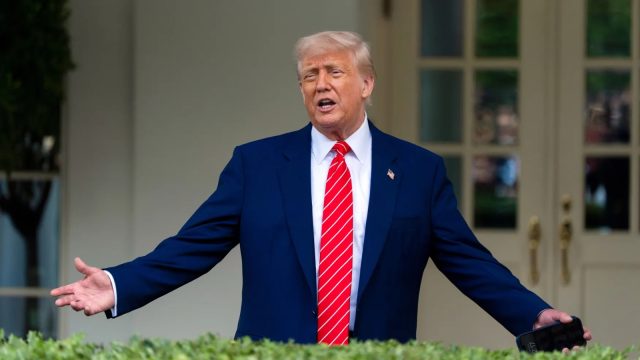WASHINGTON, Friday, May 09, 2025 (WNP): The United States is maintaining “constant communication” with the leadership of both India and Pakistan amid rapidly escalating tensions between the two nuclear-armed neighbors, the White House said Friday, as President Donald Trump pushes for urgent de-escalation.
White House Press Secretary Karoline Leavitt told reporters that Secretary of State Marco Rubio and National Security Adviser are actively engaged with both sides in an effort to prevent further military escalation.
“The President has made clear he wants to see this de-escalate as quickly as possible,” Leavitt said at her daily briefing. “These are two countries that have been at odds for decades, long before President Trump took office. However, he enjoys constructive relationships with both leaders, and Secretary Rubio has been in direct and ongoing contact with them.”
The diplomatic push comes in the wake of India’s announcement of “Operation Sindoor” late Tuesday, during which it claimed to have targeted nine alleged terrorist sites inside Pakistan. The operation marked a dramatic escalation in bilateral tensions that had been simmering since last month’s deadly attack in Indian-administered Kashmir that left 26 people dead, most of them tourists.
According to the Pakistani military, at least 31 people were killed in the Indian missile strikes and subsequent cross-border shelling in Pakistan-administered Kashmir. Officials said another 16 civilians were killed along the Line of Control (LoC), the heavily militarized de facto border between the two countries.
In swift retaliation, Pakistan’s Air Force launched a counteroffensive, downing five Indian fighter jets, including a Rafale, and reportedly gaining temporary air superiority. A senior Pakistani security official told CNN that nearly 125 aircraft from both sides were involved in an intense aerial engagement lasting over an hour—potentially one of the largest dogfights since World War II.
International observers have voiced alarm at the rapid deterioration of security in South Asia. In a detailed analysis, Newsweek described the aerial clash as “one of the most significant air battles in decades,” underscoring the evolving nature of modern warfare where radar and electronic warfare now dominate over traditional dogfighting.
The magazine further noted the global implications of the conflict, with multiple nations observing the use of advanced weaponry and military strategy. It also highlighted China’s growing influence as a defense supplier in the region, adding a strategic dimension to the broader U.S.-China rivalry.
As the world watches with growing concern, Washington’s diplomatic efforts appear aimed at preventing the outbreak of a full-scale conflict between two long-standing rivals with nuclear capabilities.




